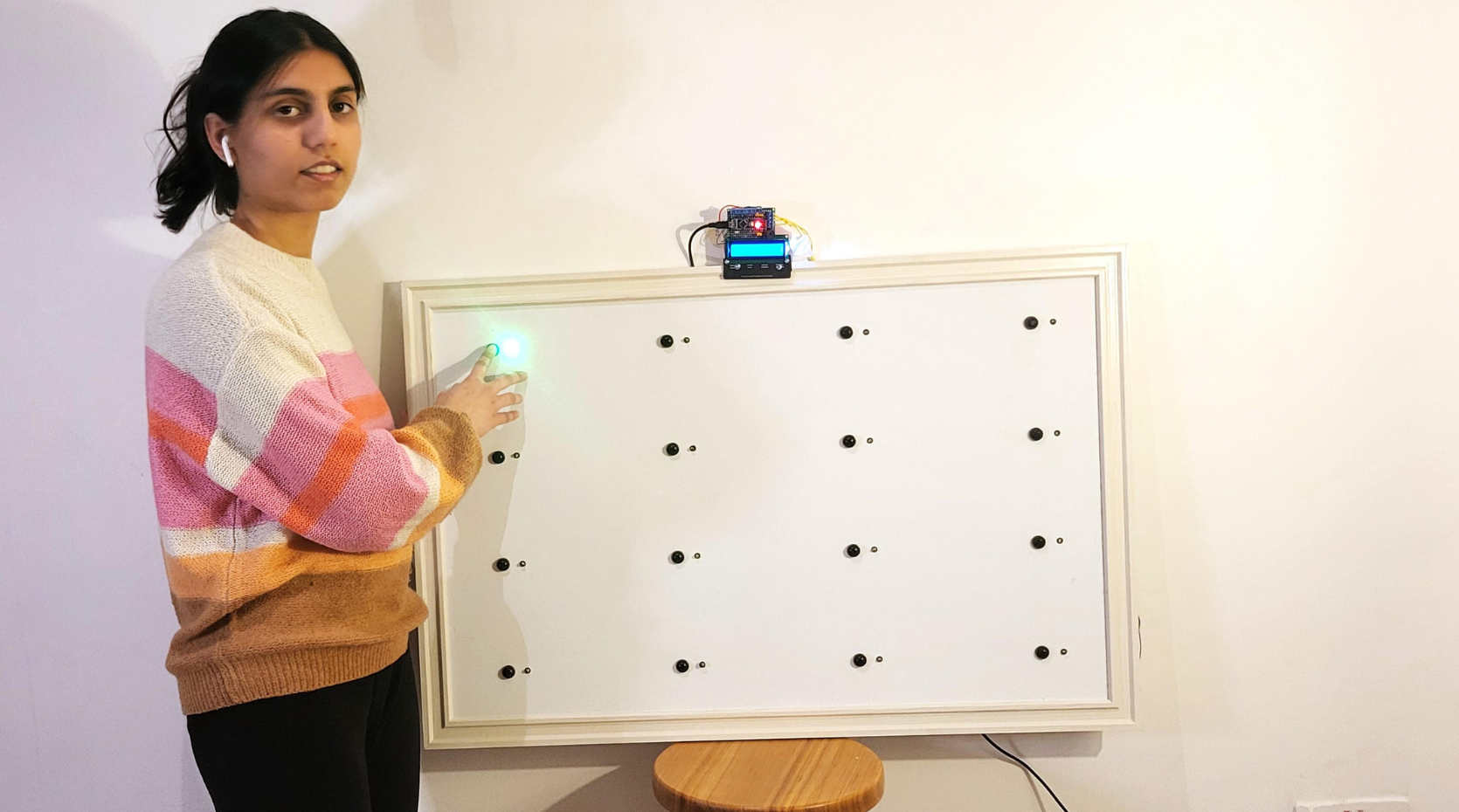An A-level student from the UK has invented a game designed to improve cognitive fitness in people with Parkinson’s.
Maryam Naveed, who is 18 years old and from Windsor in the south of the UK, conceived the idea for and built the prototype for the Cognitive Fitness Game in her spare time outside school, where she studies maths, physics and chemistry.
“I first came across Parkinson’s when I found that the famous boxer Muhammad Ali had it,” says Maryam. “I investigated and found that there are different types of Parkinson’s, and in addition there are other symptoms, like memory problems. Looking at the extent to which Parkinson’s can impact mobility, I wanted to design a game that would not only be fun but also serve as an exercise to improve hand-eye
coordination.
“My aim was to create an experience that was both engaging and user-friendly, which influenced the game’s design. The game includes a grid of LED lights with switches next to them, arranged in a four-by-four matrix. When a light turns on randomly, the player presses the switch associated with it, causing it to switch off and another light to light up randomly. This continues until reaching the set time limit (which can be set for various durations). The game keeps track of how many times the switches are pressed, showing improved hand-eye coordination as this count increases,” says Maryam.
In a video demonstration of her cognitive fitness game on LinkedIn, Maryam describes her interest in the application of technology in healthcare, and said that creating the game “not only provided an enjoyable experience but helped me learn more about electronics and programming”:
Her theory is that with consistent practice and by making the game fun, such an activity could help with cognition in people with Parkinson’s.
Although the game has not yet been played by people with Parkinson’s, Maryam has reached out to Parkinson’s organisations and is providing the code and instructions to create the game for free so that others can make their own version of the cognitive fitness game.
“I have identified the low-cost components which can make it economical to build the game, by anyone,” says Maryam, who plans to study computer systems engineering at university when she leaves school. “I believe innovative improvements can be made when technology in healthcare is made open source, especially to people who will use the technology leading to better healthcare.”
She continues: “I am hopeful that the Cognitive Fitness Game can be used by people with Parkinson’s and that they find it an engaging exercise.”
You can find out more about the design process and much greater detail of the technology Maryam used to create the cognitive fitness game on her recent LinkedIn blog post.
Find out more about changes to memory and cognitive fitness in Parkinson’s on our website.
Parkinson’s Europe is sharing this article for information purposes only; it does not represent Parkinson’s Europe’s views and is not an endorsement by Parkinson’s Europe of any particular treatments, therapies or products.

